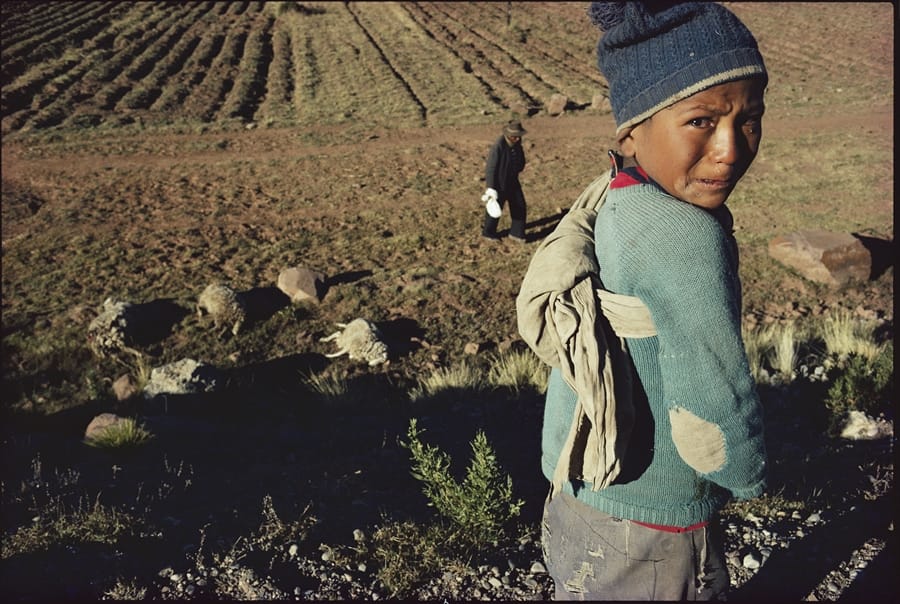Earlier this year, I spent a few months working for a NGO in Uganda. The majority of the people with whom I worked lived in extreme poverty (using the World Bank definition of at or below $1.25 per day.) It was not uncommon for me to encounter people who ate one meal a day, children wearing tattered clothes, people who had to lug 25-pound jerry cans of water to boil so they had something to drink.
As a psychologist, I was there to help establish a mental health program at the NGO. While I spent most of my time teaching and training, I was also asked to ‘counsel’ several refugees who were experiencing post-traumatic stress (‘counsel’ in quotations because I wasn’t going to be there long enough to do trauma-focused therapy responsibly, but at least wanted to honor their request to meet with them and give them tips on coping with mental health issues where applicable.)
The stories I heard were deeply disturbing: women being kidnapped, beaten, and violently raped; women contracting HIV through rape; people murdered for suspicion of political affiliations they never had; children abandoned by their parents only to be mercilessly abused by those who took them in; parents selling their children into child soldiering for $100.

Shortly into my time there, I started to notice a certain pattern. While the people with whom I met would speak fairly openly about their trauma histories, they did not spend a lot of time focusing on them. Rather, what seemed to consume them were everyday stressors of not having enough food, not having access to medical care, and not having school fees for their children. At a certain point in the conversation I would usually say, “As a counselor, a psychologist, how can I best help you in the time that I am here?” I was expecting responses like, “Could you teach me about post-traumatic stress?” or, “How can I get rid of my nightmares?” Instead, it was much more common for them to respond with, “I need 5,000 shillings ($2) to get to the doctor,” or “I need school fees for my children.” Initially, I would try to redirect them, saying, “Yes, I understand that those are very important to you. But I am a psychologist; I talk to people about their thoughts and feelings…” But the more times this response was met with confusion or disappointment, I realized there was something flawed in my approach.
While the disconnect was certainly due in part to differences between Ugandan and Western-style counseling, the much bigger lesson for me was that I was encouraging them to articulate goals that were beyond their present capacity to envision. I was reminded of Maslow’s hierarchy, which identifies five different tiers of human need, with basic needs such as food and safety at the bottom, and upper-level needs (including those typically addressed in Western-style psychotherapy) such as relationships and self-actualization at the top. The implication is that one can only work to satisfy needs at a given tier until the needs at the next lowest tier have been satisfied. “Of course,” I remember thinking, “they need to eat, get the shrapnel out of their shoulder, and get their child to school before they have the luxury of working on any other goal.”

In The Life You Can Save, Peter Singer discussed how our willingness to help those in extreme poverty is often reduced when money is the only feasible way of helping. I can certainly relate to this tendency based on my experience in Uganda. It’s not a pretty thing to admit about myself, but there were certainly times I was tempted to dismiss requests for help when the requests were focused on money. I can remember thinking, “here I am, someone with expertise to offer, and the best way I can help you is by giving you $2?” To some extent, I felt cheapened, and my guess is that many of us feel this way when we receive repeated requests from organizations for money but are rarely asked to help in other ways.
One of the ways I’ve been able to shift my perspective on this is by recalling a point made my Mackey McNeill in her book The Intersection of Joy and Money. She encourages readers not only to consider what their money will buy them materially, but the essence of what that money will provide. For example, $30 will buy me a new shirt for work, but it might also buy me increased confidence in that important presentation I have to give next week. When I apply this concept to my experience in Uganda, much of my frustration can be overcome when I realize that whereas people were asking for money for a material need, the essence of what they were requesting was freedom from anxiety about their next meal, peace of mind that their medical issues would be resolved, and confidence in their child’s ability to have a more hopeful future than their own. Perhaps the next time you receive an invitation to give money— and money is the only feasible way of helping—you can shift from thinking of it as a mere monetary gift to thinking about the essence of what it will provide. I also think it’s important to remember how privileged we are even to entertain concerns beyond the very basic ones of food, shelter, and medical care.



